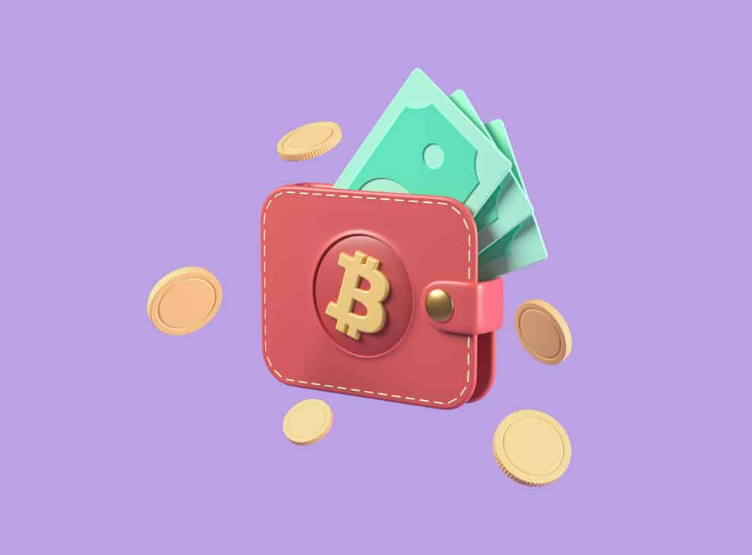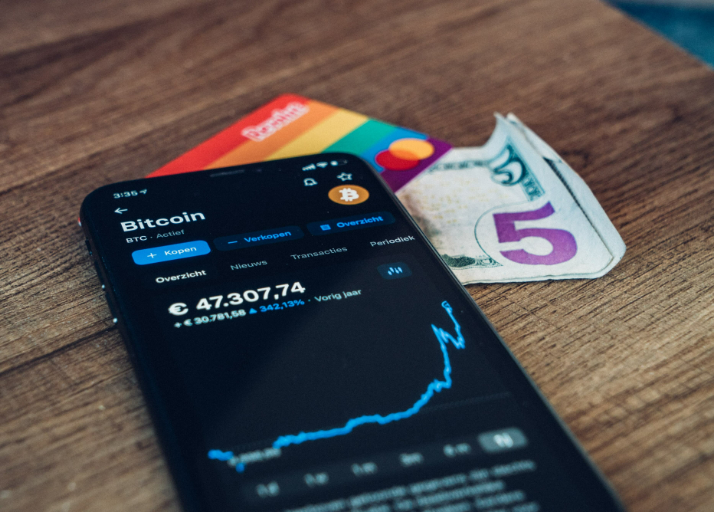
Just as you use a regular wallet to hold and protect your cash, you may need a cryptocurrency wallet to secure your Bitcoin and other digital currencies. While a crypto exchange might provide a basic wallet, a specialized crypto wallet offers enhanced security for your holdings, significantly reducing the risk of theft.
Here are some of the best crypto wallets available and the essential information you need to understand how they work.
Best Bitcoin or crypto wallets
The most popular digital crypto wallets include:
- Exodus Bitcoin & Crypto Wallet
- Trezor T
- Mycelium Bitcoin Wallet
- Ledger Nano X
- Edge
- Wasabi Wallet
What is a crypto wallet and what does it do?
Like a physical wallet, a digital wallet holds your currency, but in this case, it’s cryptocurrency. Since your digital currency only exists within the decentralized electronic network that manages and tracks it, your digital wallet must interact with that network.
Experts use the term “wallet” to describe what secures your crypto assets, but it might be more accurate to think of it as a (heavily fortified) address where your money is accounted for. In a cryptocurrency’s distributed ledger—a long-running receipt of all transactions—a wallet indicates, “any assets directed to this address belong to the owner of this wallet.”
In essence, you can’t have crypto coins without a wallet; there’s simply no place to store your digital cash. Even exchanges like Coinbase and payment apps like CashApp and PayPal provide a basic wallet for transactions, though it might not meet the needs of heavy users.
There are differences between investing in crypto, where the exchange moves and holds the asset, and actually transacting in cryptocurrency, where a wallet is needed to send and receive money. In the former, the responsibility to maintain the asset lies with the custodian, while a specialized wallet gives the end user the ability—and the responsibility—to safeguard the asset.
Advantages of crypto wallets
A digital wallet serves as a platform to collect payments and store your payment keys, enabling you to send crypto coins to others. In this aspect, it’s similar to other digital wallets like CashApp, PayPal, or Venmo, which you might already use for conventional currency transactions.
A specialized crypto wallet, however, allows users to take direct possession of their coins. Holding a wallet at an exchange can be compared to keeping your money in a bank, whereas having your own specialized wallet is akin to securing your cash in a personal safe.
What sets these specialized payment wallets apart from more basic ones is their enhanced security and additional features that cater to users with higher demands or greater concerns about security. Unlike third-party-controlled wallets, these are not susceptible to large-scale threats such as mass hacking or fraudulent custodians who might abscond with clients’ assets.
This setup implies that you alone are responsible for maintaining your holdings, a feature many consider advantageous since it eliminates reliance on a third party for custody.
Disadvantages of crypto wallets
The absence of a third party in cryptocurrency transactions can be both a benefit and a drawback, especially in terms of accessibility.
The wallet metaphor remains useful: If you lose your physical wallet, the cash inside is likely gone, potentially stolen. Similarly, with a crypto wallet, you could lose the wallet itself (if it’s a physical device) or forget your wallet’s password, which would render your stored cryptocurrency inaccessible. Either way, you risk losing your crypto assets.
If you’re using a hardware wallet, it could face physical issues, such as wear and tear, damage, or incapacitation from various causes.
Different types of crypto wallets may present additional challenges in terms of usability. Some wallets might not support transactions with certain cryptocurrencies, while others might be offline, making them highly secure against electronic theft but impractical for everyday transactions. These offline wallets can be later transferred to an online wallet for use, but this adds an extra step.
Mobile wallets are generally more convenient for making payments on the go, whereas desktop wallets are less suitable for purchasing items while you’re out and about.
Lastly, convenience plays a crucial role in the usefulness of a wallet. Any complication in the payment process beyond a simple swipe or tap, as with a credit card, can reduce a wallet’s practicality for everyday transactions.
What types of crypto wallets are available?

Broadly speaking, crypto wallets fall into two main categories: hardware wallets (also known as cold wallets) and software wallets (also known as hot wallets).
Hardware wallets
A hardware wallet is a physical device, resembling a USB thumb drive, that secures your cryptocurrency by storing your keys offline. This makes it similar to a real wallet in a physical sense. The primary advantage of a hardware wallet is its ability to be disconnected from the internet, which significantly reduces the risk of electronic theft. However, it remains vulnerable to physical theft, loss of the device, or loss of the password. When you need to move money, you simply plug the wallet into your computer and execute the transaction.
Designed mainly for safekeeping rather than frequent transactions, a hardware wallet is often referred to as a cold wallet. Popular models include the Trezor T and Ledger Nano X.
Software wallets
In contrast, a software wallet secures your cryptocurrency through software, making it generally less secure than a hardware wallet due to its internet connection. However, software wallets are designed for everyday transactions, hence the name hot wallets. Like a physical wallet, you might only want to keep what you plan to spend in it.
Hot wallets come in several varieties based on how you interact with them:
- Desktop Wallets: These wallets require you to download software onto your computer to manage your crypto holdings. They strike a reasonable balance between security and convenience, allowing you to spend money from your wallet while being able to take it offline when not in use, thus keeping it inaccessible to potential thieves.
- Web Wallets: Essentially browser plug-ins, web wallets connect to the blockchain to complete transactions. You can quickly go online to make a transaction, but the internet connection makes them less secure compared to cold wallets.
- Mobile Wallets: Ideal for payments on the go, mobile wallets are designed for use on mobile devices, typically running on Android or iOS.
Some software providers offer multiple types of hot wallets, allowing you to use one solution across different devices. Leading hot wallets also integrate with major hardware wallets like Trezor and Ledger, providing a seamless user experience.
Popular hot wallets include Exodus Bitcoin & Crypto Wallet (available on desktop and mobile), Mycelium Bitcoin Wallet (mobile), Edge (mobile), and Wasabi Wallet (desktop).
Other things to consider
Beyond the type of wallet and your specific choice, there are several key factors to consider when selecting a cryptocurrency wallet:
- Your Needs: Determine what you need from a wallet. Are you planning to transact regularly, or are you simply holding your cryptocurrency long-term? Regular transactions are better suited for a hot wallet, while long-term investors will likely benefit more from a cold wallet. You might also choose to keep most of your assets safe in a cold wallet while using a hot wallet for smaller, frequent transactions.
- Cost: Hardware wallets typically require an upfront investment of $60 to $120. Software wallets are usually free to download but may charge variable per-transaction fees.
- Support for Specific Currencies: Ensure the wallet supports the specific cryptocurrencies you intend to use. While Bitcoin is widely supported, less popular digital currencies might not be. Always check compatibility.
- Convenience: If you plan to use a wallet regularly, whether it’s hot or cold, make sure it’s user-friendly and suited for its intended purpose. Convenience is crucial for frequent use.
- Feature Set: Verify that the wallet offers the features you need, beyond just supporting specific currencies. For instance, does your software wallet integrate well with a hardware wallet you plan to use?
Like any product, a wallet should meet your specific needs. It might be highly rated, but if it lacks the features you require, it won’t be the best choice for you.
In Conclusion
Navigating the world of cryptocurrency and Bitcoin can feel like exploring uncharted territory. As you search for a digital wallet, clarity about your requirements is essential. With significant assets potentially on the line, selecting a solution that instills confidence and aligns with your needs is paramount.
